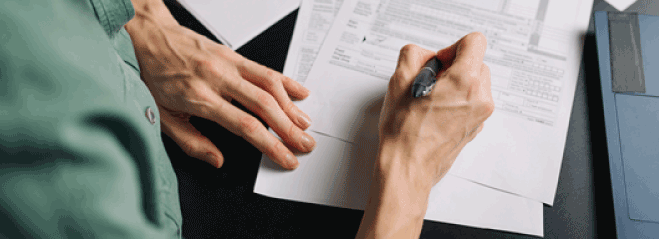Getting to grips with PVA opens the door to more straightforward VAT processing and less upfront costs, meaning better cash flow for your business.

*Information within this resource may have been updated since publication. You can read the Government's guidance page here.
When you’re looking for ways to boost your cash flow, you might not think of import VAT straight away.
However, using Postponed VAT Accounting (PVA) can be an ideal way to not only simplify your VAT process, but also help out your business’ cash flow by allowing you to manage import VAT directly on your VAT return – avoiding the upfront payment typically charged at the point of entry.
Here’s what you need to know about using PVA effectively.
Why Use PVA?
PVA simplifies the import VAT process, helping businesses manage cash flow by accounting for VAT directly on their VAT return. While in some cases it’s mandatory, such as when customs declarations are delayed, it is generally an optional but beneficial process. For detailed rules, consult the official government guidance online.
Setting Up PVA
There is no formal application process for PVA. To use it, simply confirm your choice on your customs declaration:
- Using the CHIEF system*:
- Enter your EORI number (starting with “GB”) in Box 8 or Box 44h.
- Use method code ‘G’ in Box 47e for postponed VAT accounting.
- Using the CDS system:
- Provide your VAT registration number in data element 3/40 at the header level.
- NOTE: VAT will be recorded against your EORI and will be at declaration level only.
If a customs agent or third party handles your declarations, ensure they know you wish to use PVA. Keep written confirmation of your agreement. Note that declaration choices cannot be amended after submission.
Completing Your VAT Return
After selecting PVA in your customs declaration and accounting for import VAT when you complete your VAT return, you’ll need:
- details of any customs entries you have made in your own records
- copies of your monthly postponed import VAT statement, when available
Unless you have delayed your customs declaration, each of your statements will show the total import VAT postponed for the previous month.
If you’re delaying your customs declarations, you’ll need to:

- Account for import VAT on the return which includes the date you imported the goods
- Complete the boxes on your return (you’ll need to estimate the import VAT due from your records of imported goods)
- When submitting your delayed declaration, you must select that you’re accounting for your VAT on your return
After doing this, your next online monthly statement will show the amount of import VAT due on that delayed declaration. You’ll then be able to adjust your estimate and account for any difference on your next return.
What happens now - accessing your monthly VAT statement
If you account for your import VAT on your VAT return, you’ll need to get a postponed import VAT statement online. Monthly postponed VAT statements are available online, usually by the 6th working day of the month.
Unless you have delayed your customs declaration, the statement shows the total import VAT for the previous month. You’ll need a Government Gateway user ID linked to your EORI number to access them.
Further Support
For additional assistance:
- YouTube Videos: You can learn about customs processes through official tutorials, including on the HMRC channel.
- Webinars: Sessions are available on customs declarations, staged controls, and trader responsibilities on various platforms.
- Customer Forums: Ask specific questions and share experiences with other businesses.
Call the helpline
Contact the Customs and International Trade helpline for expert advice with importing, exporting and customs reliefs. The helpline is open from 8am to 10pm Monday to Friday and from 8am to 4pm at weekends. Call to speak to an advisor on 0300 322 9434.
By understanding and correctly applying PVA, businesses can streamline VAT handling and enhance financial efficiency.
Bira's advocacy takes your voice to the heart of Parliament
Bira is at the forefront of championing the cause of independent traders and shopkeepers across Britain.
Our campaigns cover a wide spectrum of issues crucial to the success of independent traders including:
- Combatting the rising tide of retail crime
- Advocating for changes in legislation that promote fairness and flexibility
- Fighting for fairer business rates
- Overall reducing the regulatory burden
- £1 billion damages claim against Amazon by UK retailers
Latest Resources
-
Christmas window display competition
Not only will you get to showcase your festive spirit, but you can also win a hamper worth over £150
-
The Home Office’s ‘Myth Buster’ guide on Martyn’s Law – How small businesses can prepare
Martyn’s Law sets new standards to protect the public from terrorism — here’s how small businesses can prepare for the changes.